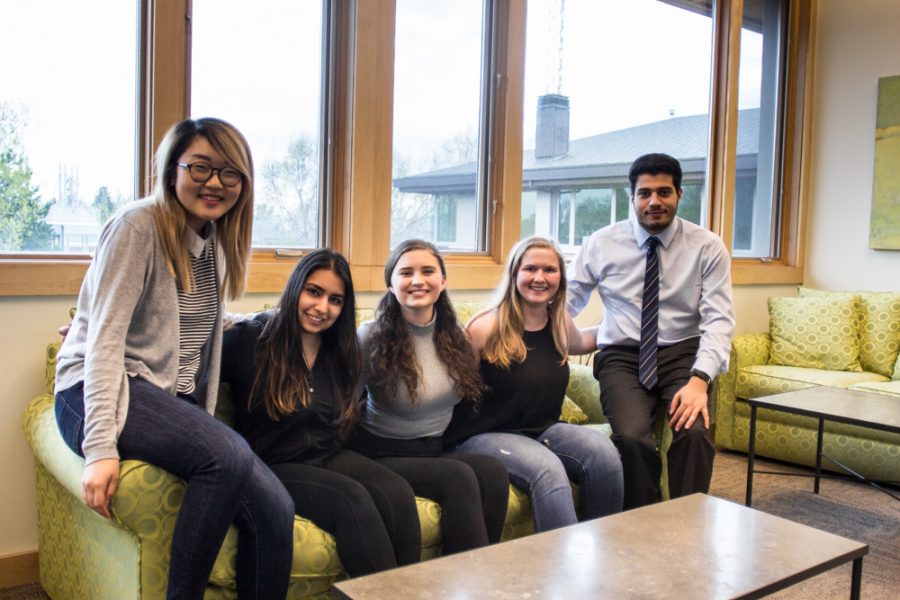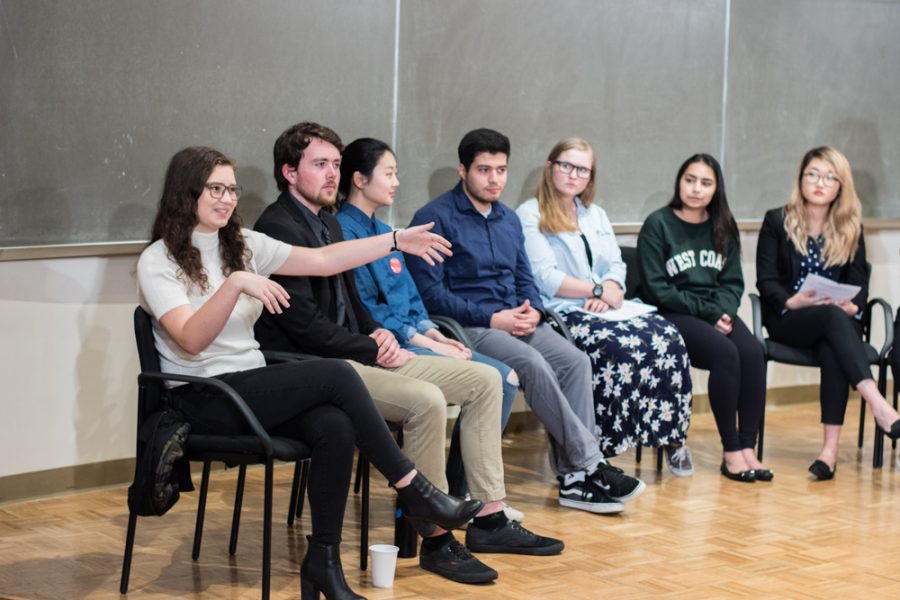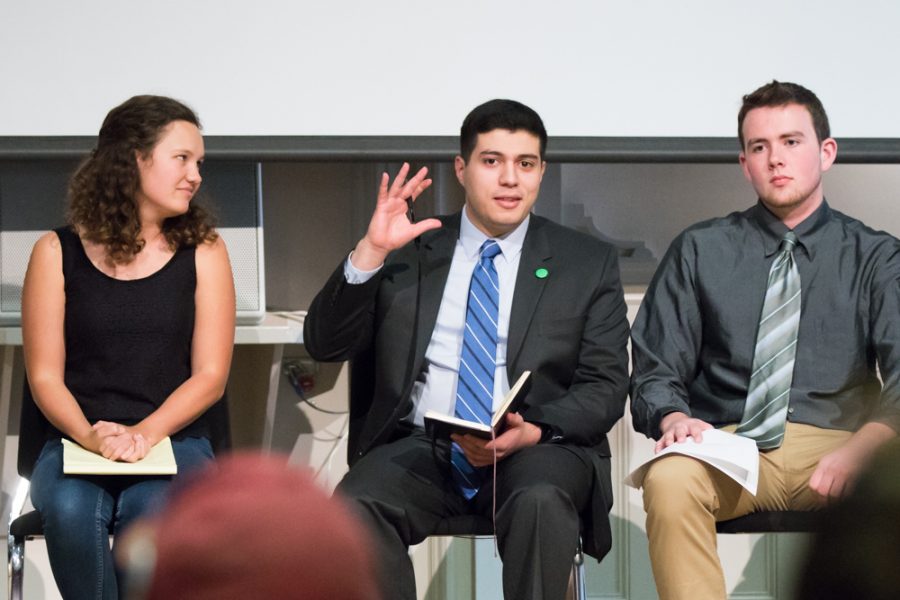ASWC will be reconvening next week to govern over the Spring 2012 student body. The Pioneer had the opportunity to speak with ASWC President Matt Dittrich about challenges his administration has faced this year and what he expects to accomplish this semester.

The Pioneer: Last year, when you were running as a a presidential candidate for ASWC, The Pioneer asked you what you believed to be the biggest issue facing Whitman students. How would you answer that question now?
Matt Dittrich: Given my experiences in the last few months, I think I have to give a more general answer: How do students take ownership of their college? How to actually feel comfortable giving back and earn the right to give back. And then take the opportunities that come along to give back. Although, in certain circumstances, it can be difficult for students to feel capable and they have the right to assert their rights within the college.
Pio: Last semester, you ran on the platform of increasing student representation on college committees and governing boards. Do you feel that you have accomplished this goal?
MD: It’s a really difficult answer to support, but I’m going to officially say yes. The reason why it’s so difficult to support, is that the only governing board meetings held so far were in Seattle, which can be difficult to involve students. That being said, we had all of our student representatives present at board meetings via phone conversations. In all of the student committees in which students served on, students had agenda items. I also had a full board presentation, focused on the thesis of student ownership and pretty substantially on the Undocumented Students Statement. I was also allowed, for what I believe was the first time in historical memory, to be present for Board deliberation on the Undocumented Students Statement. I think students have gained a lot of respect from the Board, and I think student voice is more highly valued now than ever before.
The plan now, at this semester’s Board meetings, is to have more student groups visit the different committees and give larger student presentations. I think the true success lies in the sheer amount of contact between students and the Overseers in the past few months.
Pio: Last year when you were the Finance Chair of the Finance Committee, you lowered the ASWC student fee. Do you think ASWC will do so again for the upcoming academic year?
MD: I don’t want to speak for the whole Finance Committee, but I will say this: We have a substantial surplus again this year, although a large part of that is due to the fact that we had large incoming class again. However, we’ve dedicated a lot of dollars to really awesome projects and we’ve spent a lot of money this year on really important things. I think the demand is definitely there for funds; I think that every single student dollar we collected this year will go to something remarkable and substantial. But if we do want a more austere budget next year, I think it would be completely reasonable.
Pio: Does ASWC have any specific goals for this semester? What kind of bills would you like to see pass? Where would you like to see the bills you passed last semester go?
MD: I’d like to take a hard look at alumni resources and networking that take place inside and outside Whitman, and see how ASWC can help the Student Engagement Center facilitate more conversation among Whitman alumni.
External to Whitman, I think it’s about time that Whitman had a serious social media presence. One thing I’m going to be challenging my senators to do, and that I plan to have a hand in authoring, is a resolution that clearly articulates the features and benefits of a Whitman owned LinkedIn program that would connect graduating Whitman seniors with Whitman alumni in a more formal way.
I also think it’s about time students became more involved with promoting and sustaining the financial well-being of the college. I think it’s important for us to articulate and define our role in building the financial strength of the college. One thing I think we can do to help explore that, is to more clearly define the role of class committees in fundraising.
Pio: What do you feel were some major weaknesses of ASWC as a governing body last semester? What do you hope to do to overcome these weaknesses?
MD: I think as much as we were trying to communicate with the student body, it wasn’t as effective as possible. That being said, we’re poised to bolster communication. In the next two weeks, I plan to call a media summit of the media heads of campus to talk about bolstering communication, stirring the dialogue about what it means to promote communication across campus.
In addition, we’re intending to send out a little note to the community, every other Friday proceeding our senate meetings, to inform the broader public of the few more intriguing items on the agenda, just so if anyone wants to contribute to the agenda they can.
Pio: Anything else that you would like to mention?
MD: In terms of the Undocumented Students Statement, I just stress that as we make sense of this really important statement that we’ve made, that we always need to have a very critical eye toward opportunities to improve and support civil rights in the community. One thing I’m going to be asking my senators and staff to do, is to make contact with 50 local businesses or non-profits. Just to make contact, to let them know that we’re here and that we care, and to see if there are opportunities to partner to improve opportunities to the disadvantaged. It’s important to remember, just like the Undocumented Students Statement suggests, the effort to bolster civil rights always begins in your backyard. It starts here, right here in Walla Walla. We create ripples; we are obviously the most impressive and prominent leader, in terms of colleges, in the Northwest.








